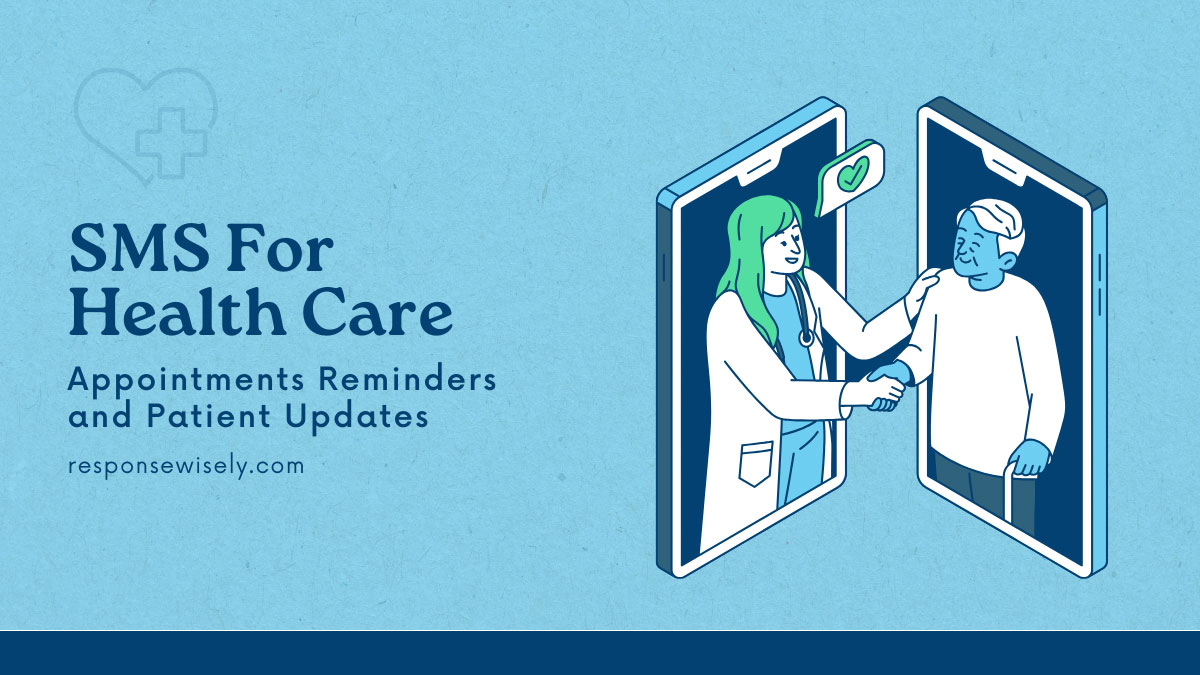As a seasoned blogger in the health care industry, I’ve witnessed the transformative power of technology in improving patient outcomes. In this text, I investigate into the world of SMS for health care, focusing on appointment reminders and patient updates.
SMS has revolutionized the way health care providers communicate with their patients, ensuring timely reminders for appointments and essential updates on their health status. Join me as I explore the benefits and challenges of incorporating SMS into the health care system.
From enhancing patient engagement to reducing no-show rates, SMS has the potential to streamline processes and enhance the overall quality of care. Stay tuned as I uncover the impact of SMS in health care and how it’s shaping the future of patient-provider communication.
Importance of SMS in Healthcare
Enhancing Patient Engagement
When it comes to patient engagement, SMS plays a vital role in keeping patients informed and connected. By sending health updates and appointment reminders via text messages, healthcare providers can ensure that patients stay engaged with their care plans. This proactive approach fosters a sense of continuity and personalized communication, leading to better patient satisfaction and outcomes.
Improving Appointment Adherence
One of the key challenges in healthcare is appointment adherence, but SMS has proven to be a valuable solution. With appointment reminders sent directly to their phones, patients are less likely to forget or miss their scheduled visits. This not only reduces no-show rates but also optimizes clinic efficiency by enabling better schedule management.
Implementing SMS for Patient Communication
Choosing the Right SMS Platform
When selecting an SMS platform for patient communication, it’s crucial to prioritize features like automation for appointment reminders, customization for personalized messages, and integration with existing systems. Look for a platform that complies with healthcare regulations to safeguard patient information and ensure secure communication.
Crafting Effective Messages
To create effective SMS messages, I focus on being concise and clear while including important details like appointment dates, times, and clinic instructions. Personalize messages when possible to increase patient engagement and response rates. Incorporating call-to-actions such as confirming appointments or providing feedback can further enhance patient interactions.
Ensuring Patient Privacy
When implementing SMS for patient communication, I prioritize patient privacy by encrypting messages and ensuring secure delivery. I also obtain consent from patients before sending any health-related information via text messages to maintain compliance with HIPAA regulations. By protecting patient data, I build trust and confidence in our communication practices.
Benefits of SMS Appointment Reminders
Reducing No-Shows
- Decrease no-show rates by up to 50%.
- Improve appointment attendance and reduce revenue loss.
- Convenient and easy way to remind patients of upcoming appointments.
Increasing Operational Efficiency
- Streamline appointment scheduling processes.
- Reduce administrative burden for staff.
- Automate reminders and updates, freeing up time for other tasks.
- Personalized communication enhances patient experience.
- Patients feel valued and cared for.
- Build stronger patient-provider relationships through effective communication.
Case Studies on Successful SMS Integration
Hospital A: Decrease in Missed Appointments
At Hospital A, SMS integration led to a significant decrease in missed appointments. By sending appointment reminders via SMS, the hospital achieved a reduction of up to 40% in no-show rates. Patients appreciated the convenience of receiving reminders on their phones, resulting in a more effective and efficient appointment scheduling process.
Clinic B: Improved Patient Communication
In Clinic B, the implementation of SMS for patient communication brought about notable improvements. Through personalized updates and reminders, the clinic witnessed a boost in patient engagement. This direct line of communication enhanced the overall patient experience, fostering stronger relationships between patients and healthcare providers.
Key Takeaways
- SMS in healthcare enhances patient engagement by providing timely updates and appointment reminders.
- It improves appointment adherence, reduces no-show rates, and optimizes clinic efficiency.
- Select an SMS platform with features like automation, customization, and compliance with healthcare regulations.
- Craft concise and clear SMS messages with personalized details to increase patient engagement.
- Prioritize patient privacy by encrypting messages, obtaining consent, and complying with HIPAA regulations.
- SMS appointment reminders reduce no-show rates by up to 50%, streamline processes, and enhance patient-provider relationships.
Conclusion
Implementing SMS for healthcare services has proven to be a game-changer, with remarkable outcomes seen in hospitals and clinics. The success stories of Hospital A and Clinic B demonstrate the power of SMS reminders and updates in reducing missed appointments and enhancing patient engagement. By leveraging the convenience and efficiency of SMS, healthcare providers can strengthen their relationships with patients and streamline their scheduling processes. The positive impact of SMS integration in healthcare settings is undeniable, paving the way for improved patient experiences and better communication between patients and healthcare professionals. Embracing SMS technology is not just a trend but a valuable tool for transforming the healthcare world.
Frequently Asked Questions
How can SMS integration benefit healthcare settings?
SMS integration can benefit healthcare settings by reducing missed appointments, improving patient engagement, enhancing the overall patient experience, and strengthening relationships between patients and providers.
What were the results of implementing SMS reminders in Hospital A?
Hospital A saw a significant decrease in missed appointments, with up to a 40% reduction in no-show rates after implementing SMS reminders.
How did patients perceive SMS reminders in Hospital A?
Patients in Hospital A found the SMS reminders convenient, leading to a more efficient scheduling process.
What impact did SMS communication have on patient engagement in Clinic B?
SMS communication in Clinic B improved patient engagement through personalized updates and reminders.
What was the overall outcome of using SMS in healthcare settings?
The use of SMS in healthcare settings improved patient experience, efficiency, and relationships between patients and healthcare providers.

